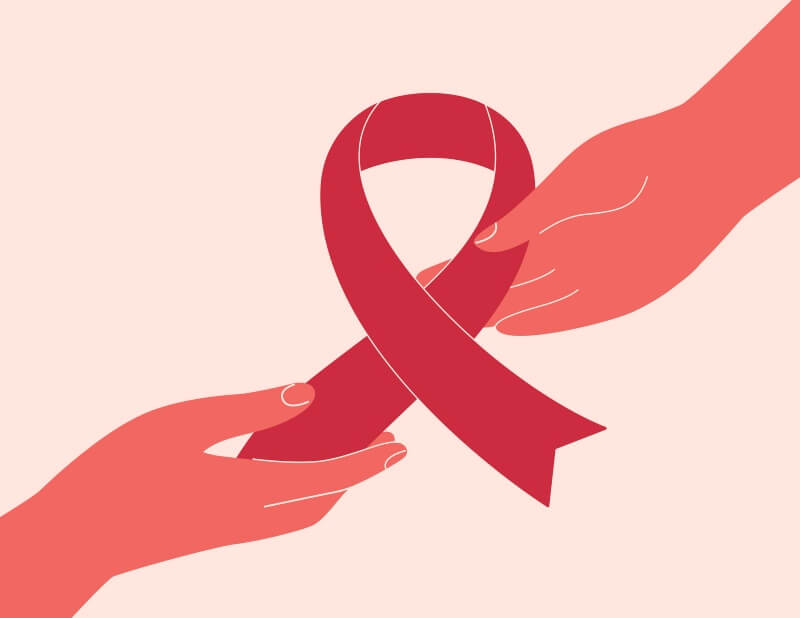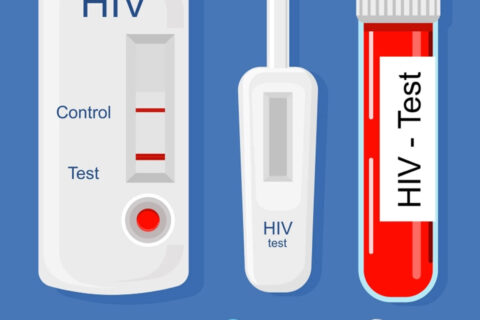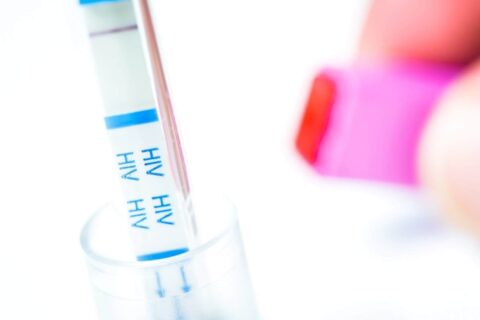What Are the Symptoms of HIV?
Roughly 1.2 million people in the U.S. have Human Immunodeficiency Virus (HIV) and around 13 percent of them don’t know it and require testing. HIV is a serious virus that can have devastating consequences if left untreated. However, early diagnosis and treatment can help people with HIV lead long, healthy lives. Knowing the symptoms of HIV can help promote early diagnosis and the best possible treatment and care while also helping people avoid transmission of the virus to others. Understanding the symptoms can help bring much-needed attention to the HIV epidemic. By learning more about HIV, we can all work together to fight this virus and help those affected by it.
What Is HIV?
HIV stands for Human Immunodeficiency Virus. The HIV virus attacks the immune system, specifically the CD4 cells (T cells) making it difficult for the body to fight off infection. HIV can cause a wide range of illnesses, some of which are deadly.
How Is HIV Spread?
HIV is most commonly spread through sexual contact with an infected person. It can also be spread through contact with infected blood, semen, or vaginal fluids. HIV can also be passed from mother to child during pregnancy, childbirth, or breastfeeding. As the disease progresses, it can lead to more serious problems such as pneumonia, brain infection (AIDS), and death. There is no cure for HIV, but there are treatments available that can prolong a person’s life. HIV awareness and prevention are critical in stopping the spread of this virus.
What Are the Symptoms of HIV/AIDS and Stages?
The symptoms of HIV can vary from person to person. In some people, the virus may cause only mild illness, while in others it may progress to AIDS quickly. The symptoms of HIV also depend on the stage of the disease.
There are three stages of HIV infection: acute (early) infection, latency (no symptoms), and AIDS (severe illness).
During the acute stage, some people may experience a short, flu-like illness within two to four weeks after infection. Symptoms may include fever, rash, sweats, swollen lymph nodes, and fatigue. This is followed by a period of latency (no symptoms) that can last for years. It is important to note that during the acute stage you may not experience any symptoms at all.
AIDS is the most advanced stage of HIV infection. It is marked by the development of certain infections or cancers or a decrease in the number of certain cells in the body’s immune system. People with AIDS often experience fevers, diarrhea, weight loss, and fatigue. AIDS can be fatal if not treated.
How Is HIV Diagnosed?
There are several ways that HIV can be diagnosed. The most common method is through a blood test, which looks for antigens of the virus or antibodies to the virus. Antibodies are produced by your immune system when you’re exposed to viruses like HIV. They are one of your immune system’s fighting cells. Antigens are foreign substances that cause your immune system to activate.
Other methods of diagnosis include saliva tests and swabbing the inside of the mouth. These tests are generally less accurate than blood tests but may be used in certain situations.
Once someone has been diagnosed with HIV, they will need to have regular checkups with their healthcare provider to monitor their health and ensure that they are taking the right medications.
How Can HIV Be Prevented?
There are several ways that HIV can be prevented. Knowing the HIV status of your partner(s) and yourself will help avoid HIV transmission. Hence, being screened for HIV regularly is an important way to prevent transmission. Consistently using a condom during oral, vaginal, and/or anal intercourse is an effective way of preventing transmission. This will reduce the chances of encountering infected body fluids. Other methods include not sharing injecting equipment (including syringe, needles, water, cotton, the drug itself), avoiding contact with infected blood, and taking antiretroviral medications.
You can take antiretroviral medication daily or a shot every 2 months that will prevent HIV transmission. This is a prevention strategy called pre-exposure prophylaxis (PrEP) that the BHA ID team can prescribe for you.
It is important to remember that these methods are not 100% effective, and it is still possible to contract HIV. The best way to avoid getting HIV is to abstain from sexual intercourse or to be in a monogamous relationship with someone who is not infected.
What Is the Treatment for HIV?
There is no cure for HIV, but there are HIV treatments available in Florida that can help people manage the virus. People who are infected with HIV typically take a combination of drugs called antiretroviral therapy (ART). These drugs help suppress virus replication and proliferation in the body and improve a person’s health.
Schedule an HIV Test if You Have Been Exposed to HIV
If you think you may have been exposed to HIV, it is important to seek medical attention as soon as possible. Early treatment can help reduce the risk of developing HIV infection. There are several steps you can take to protect yourself and others if you have been exposed to HIV:
- Seek medical attention as soon as possible.
- If you are not already taking anti-HIV drugs, start taking them as soon as possible.
- Avoid any activities that could put others at risk for exposure to HIV.
- Get tested for HIV regularly so that you can get early treatment if needed.
- Talk to your doctor about pre-exposure prophylaxis (PrEP), which can help protect you from HIV infection if you are exposed to the virus. PrEP is a daily pill or bimonthly injection that can reduce your risk of getting HIV by up to 92%.
- If you are pregnant, get tested for HIV immediately and seek treatment if you test positive. HIV can be passed from mother to child during pregnancy, childbirth, or breastfeeding. Treatment can help protect the baby from developing HIV infection.
Connect With a Doctor for Help With HIV
If you have HIV, then it is important to contact an infectious disease doctor for services. Brevard Health Alliance in Florida offers testing and treatment services at BHA locations. Contact us today to schedule an appointment! It is important to know your status to avoid accidentally spreading the virus to others and to take the steps necessary to safeguard your current and future health.



















































































































































